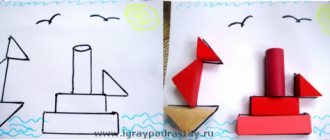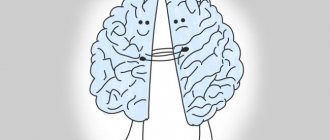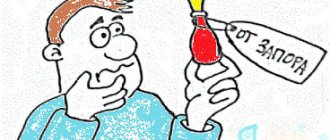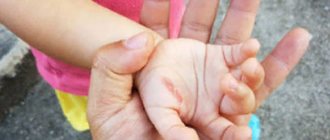What is it for?
Before we look at the important question of how to develop memory in a child, we need to say a few words about why this is needed:
- As mentioned earlier, memory is a faithful assistant in life. It allows the child to remember all the skills and useful information. Every society from birth develops 2 types of this function: visual memory (allows you to recognize your loved ones, objects and navigate in space) and intellectual memory (allows you to remember important information, poems, songs, etc.).
- A good memory is necessary for full learning. Knowledge will be given to the student better. He will quickly reproduce in his head the material that he learned earlier, thanks to this he better assimilates new information.
This function is formed arbitrarily, and the older the child, the better developed it is. Special memory games for children and a set of medications will help strengthen it.
When should you start?
When should children prepare activities to improve memory and attention? There is not and will not be any specific figure here! Each child may develop at a different rate. The mother should look at how classes are conducted to improve this ability, and independently determine whether her beloved baby can handle them. Before the age of two, you should try to play several simple memory games for children.
- You need to turn on a cartoon for him and see his reaction. The plot must interest him, otherwise his work will be in vain. Frequency – up to 1.5 hours a day. After a week, you need to ask your child a few questions. For example, what is the name of this hero? What is this series about? What will happen to this character? If the baby copes with this task without difficulty, it means that he is developing this ability well.
- By the first year of life, visual memory should be functioning. It's easy to evaluate. Children at this age recognize their loved ones. They will always reach out to those who are well known to them (mom, dad, grandmother, grandfather, brother, sister, etc.). In the house they remember where their favorite toys and sweets are.
Psychologists recommend that children read a lot. Moreover, this must be done from birth. Yes, yes, newborns hear perfectly and are able to process information.
“What happened to you?”
There is a great game for children's memory and brain work. It's called "What Happened to You?" It does not require any cards, pens or other office supplies. You can play it right on the way from kindergarten to home.
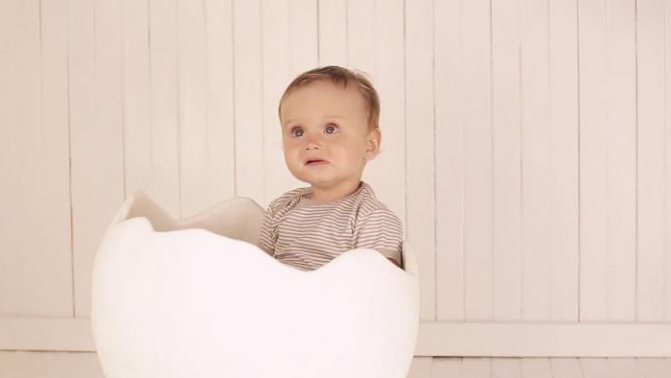
You should ask your child simple questions: “What did you eat in the garden?”, “What were your activities?”, “What is the name of the teacher?”, “What was the girl Masha wearing?”, “What toy did the boy Grisha bring with him?”
Such classes should be carried out daily. They simultaneously improve the baby’s memory and speech. At first, most likely, the stories will be confusing, but gradually they will become voluminous and interesting.
Products for memory and attention for children
We talked about substances that improve a child’s memory and mental activity, now we’ll talk about which products contain certain substances that a child needs for memory.
The most important products that have a beneficial effect on improving and developing a child’s memory are seafood. They contain many B vitamins, iodine, and polyunsaturated fatty acids. Seafood has an excellent effect on the mental activity of children, adolescents and adults, maintains memory in good working order, and ensures clarity of thinking. Fatty fish varieties are especially useful for brain function, and therefore for the child’s memory, thinking, and concentration. Give your child sardines, trout, herring, salmon. The fattier the fish, the more beneficial it is for mental activity (and not only). Many people know from childhood that seaweed is incredibly rich in iodine, so it should definitely be included in the children's diet. Especially during the period when it needs additional stimulation of mental activity. However, seafood is one of the foods that is good for memory and for adults

Other seafood is no less useful for a child’s memory: oysters, crabs, shrimp, caviar. When preparing fish and seafood, it is advisable to avoid frying: this way, a lot of polyunsaturated fatty acids are lost. It would be ideal to bake the fish in the oven or grill it. Amino acids contained in fish are necessary for high-quality perception and memory of information. At least three times a week, give your child fish instead of meat, and you will be surprised how much more attentive, more collected he is, and how his memory has improved. Fish and seafood can be given to schoolchildren for breakfast or as a snack.
Nuts are an important food for memory and attention for children. Nuts are a storehouse of useful substances for memory. They contain vitamins A and E, magnesium, zinc, and polyunsaturated fatty acids. Nuts stimulate the body’s mental activity, nourish brain cells, and improve the quality of perception. The walnut is considered the most useful, but other nuts can be given to children. A mix of different nuts is especially good to give to schoolchildren as a snack during breaks: such an afternoon snack will be tasty, nutritious, varied, and beneficial for the brain and the body as a whole. It’s easy to determine the number of nuts given; the daily norm is: a handful of nuts. It is useful for the child’s memory to give pumpkin seeds (5 pieces) as a supplement to nuts. They contain a lot of zinc, so they will contribute to good memorization of the material.
Vegetables, berries and fruits are also foods that improve a child’s memory and attention. Purple berries will especially help with this: grapes, blueberries, plums, blackberries, black currants, blueberries.

It is useful to give your child cranberry juice. Berries contain a lot of vitamins, antioxidants, and polyunsaturated fatty acids. These substances, as we said, are responsible for the functions of memory, attention and good concentration. Citrus fruits are very useful, especially lemons, because they are very rich in vitamin C. Regularly adding a slice of lemon to your tea will not only have a good effect on the immune system, but also on mental activity.
Garlic is also an indispensable product for memory. Three cloves of garlic a day will improve your child's memory and may improve his academic performance.
Nutrition to improve memory and brain function in children should include a variety of grains. The most healthy cereals are buckwheat and oatmeal. Wheat bran should also be included in a schoolchild’s diet. It is useful to prepare porridge from a mixture of different cereals. Cereals are rich in minerals, vitamins A, B, E. Porridge for breakfast is an excellent menu option.
Honey is very useful for a child's memory and attention. It contains glucose, which nourishes the brain, ensures mental clarity, good memory and thinking. A spoonful of honey into the porridge - and a great breakfast for a schoolchild is ready!
Milk is very useful for a child's memory. It contains many B vitamins, which are best absorbed with milk. It is also rich in vitamins and amino acids, which makes the product an excellent drink for good memory. Brain function will improve significantly if you drink two glasses of milk a day.
Simple games at home
Many mothers wonder how to improve their children's memory. You should not look for the answer to it from professional teachers and psychologists. You just need to love your baby and devote several hours a week to activities with him. There are five simple games you can play at home:
- You should learn short children's poems. At first it will be one line, then two, three. With age, there will no longer be problems with learning songs and lyrics for theatrical productions in kindergarten.
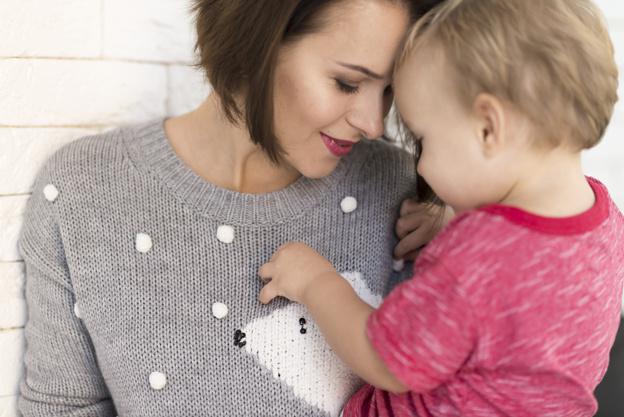
- If the child already speaks fully, then you can play with objects. No more than five toys should be placed in a row. The participant closes his eyes - mom hides one of them. The goal of the game is to find out which one is missing.
- You need to take several pictures and arrange them in a row. Then mix everything. The kid must restore the broken chain.
- You need to get photographs: family photos or a group photo from kindergarten. The child needs to name the names of everyone he knows.
- Books for children develop thinking, memory and logic well. You can read a fairy tale to your son or daughter in fragments, and he or she must fill in the gap. Mom asks: “Grandfather planted what?” The child must quickly answer - “Turnip”.
Any ability needs to be developed comprehensively. It is required to engage in modeling, drawing, and putting together puzzles with the preschooler. Hand motor skills also have a good effect on his abilities.
Cultivate an early passion for books
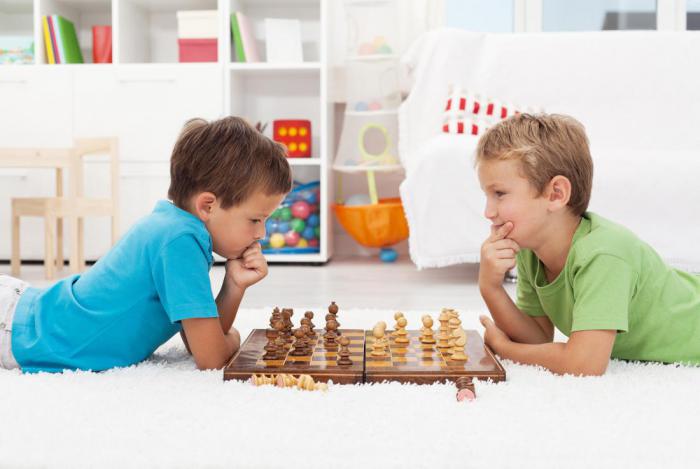
Choose books with big, bright pictures and share your child's joy with gestures and sounds, for example animal sounds go well with a picture of a farm. Modulate the tone of your voice, simplify or stop at certain points, stimulate the child’s desire to discuss the books he has read. Remember that in infancy it is much more important to develop a child's receptive language (understanding what is said to him) rather than expressive language (the speech itself).
Study the exam procedure: the psychologist spoke about preparing for the Unified State Exam
Pilates as a new generation of gymnastics with an adapted method
How to make bookshelves in the shape of a cute pony: looks great in a nursery
Is my child healthy?
At the age of 3 years, you can do a small test to check your baby's memory. Buy a decorative item such as a painting, new curtains, a chandelier and hang it in the room. When your baby comes home, he will definitely notice the changes.
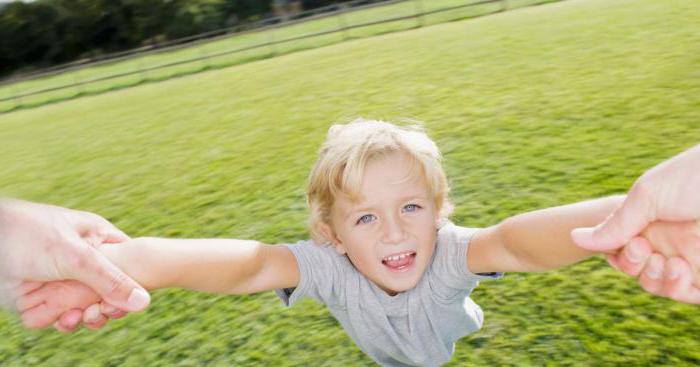
At the age of 6–7 years, it is required to clearly name ten words of one category. These could be fruits, vegetables or toys. If a child repeats at least five of them, it means his memory is well developed. If 7-8, then very good. If 10, then he has excellent intellectual abilities. In the same way, you can determine the type of this ability. It can be short-term (he quickly remembers, but immediately forgets) and long-term (he can easily remember the words a few hours after the game).
At school age, this can be determined by paying attention to how discipline is given to the student at school.
If, after the test, a parent suspects that his baby may have problems, then he needs to contact a specialist. Children may need to take additional memory medication.
Consultation for parents “Performance of preschool children”
Yulia Guseva
Consultation for parents “Performance of preschool children”
Consultation for parents
Performance of preschool children
Efficiency as a person’s ability to develop maximum energy and, using it sparingly, achieve a goal with high-quality performance of mental or physical work . Mental and muscular (physical)
performance is closely related to age : all indicators of mental performance increase as children
. To raise a healthy child, in addition to physical and mental health, one should develop and correct his performance , i.e., develop the ability to act purposefully and effectively . In preschoolers, performance decreases very quickly. This is evidenced by general “motor restlessness”
, which indicates the child is tired.
“Motor restlessness”
is a protective reaction of the body. The child seems to switch off from boring activities, and thus avoids overwork.
Is it legal and necessary to talk about “ workability ”
and develop it in
preschool children and does it have any features compared to adults? , we are not talking about any productive work in , nevertheless, maintaining stable performance in the classroom , while performing work assignments, even during physical education classes, sports entertainment, is necessary for a preschooler and is an important indicator of the child’s overall readiness for schooling.
With age, performance increases . An increase in its general level occurs, in particular, due to daily exercises, during which the general training of all systems and functions of the body is carried out. This is evidenced , for example, by the fact that children who are accustomed to systematically studying in kindergarten and those who entered a preschool institution from home have different performance levels .
With systematic training in kindergarten, starting from younger groups, the perseverance children to older age increases , which in turn allows you to increase the duration of classes and their number.
There are significant differences in the development of mental performance even among preschoolers of the same age . Some children have high and average levels, while others have significantly reduced levels. This is alarming for a variety of reasons.
Firstly, because these children are not active enough in activities that require intense mental work (speech development, literacy, mathematics)
. They rarely raise their hand and rarely answer questions, and are quickly and often distracted.
Secondly, because this situation for some children remains almost unchanged throughout the entire school year, in other words, their performance does not increase . Most of these children exhibit “intellectual passivity”
, i.e. there is no habit of thinking
(listening, perceiving, solving problems)
. But this is precisely what all education is based on, first in kindergarten, and then at school.
And if on time (before school)
If you do not pay due attention to this, then teaching such a child already in the 1st grade will cause a lot of trouble and great difficulties
for parents , teachers and, first of all, the child himself.
Thirdly, an insufficient level of performance reduces the quality of children’s work in the classroom . Children cannot assimilate program material in full due to increased fatigue, which, first of all, affects the amount of attention span and thought processes. It is difficult for children to compose a story, retell a text, solve a problem, answer questions, achieve the desired result, and evaluate the work of themselves and their comrades . As a result, knowledge problems arise.
Fourthly, often a child with low performance is characterized by lack of confidence in his own abilities. These children are characterized by increased shyness, isolation, and timidity. The effectiveness of work and its quality largely depend on the unity of influence on the child of the family and kindergarten.
The greatest influence on the level of performance of a preschooler is exerted by his state of health and the conditions of family education.
Children with health problems are usually characterized by low mental performance . The cause may be acute illnesses, unfavorable pregnancy, birth injuries, etc. These children are either passive or easily excitable. Even if their behavior in a group is not objectionable, at home they easily show outbursts of excitement and become capricious. In this case, you should consult a doctor for advice.
Parents should take care of the strict implementation of the daily routine of such children . At the age of 6-7 years, daytime sleep is required. In the evening, it is necessary to avoid prolonged sitting in front of the TV or noisy games with brothers or sisters. The child is set up for a calm wave.
Before increasing mental performance , you need to harden the child and strengthen his health (on weekends - various hikes and games in the fresh air)
.
The issue of nutrition is very important. Excitable children often have an unstable appetite (involve the child in cooking)
.
performance by dysfunctional family relationships: rudeness in handling children and between family members, quarrels.
The mental performance of a preschooler in class depends on interest in classes. parents can develop and support it . When you return home from kindergarten, find out: who the child played with, what he did, what he learned new, what classes he had, whether he coped with the tasks, and whether he wants to try again at home.
At home in games with children we offer:
- retell a simple short text or a passage you like;
- compose a story based on pictures with a gradually developing plot;
an “art gallery” from pictures or postcards
and as a tour guide, title the paintings and talk about them
(and the relatives guess)
.
Taking medications and nutrition

Pediatricians insist that children need to be given vitamins to improve memory while attending primary school and at an earlier age, if there are significant indications for this. There are several drugs that normalize brain activity:
- "Pikovit";
- "VitaMishki";
- "Junior";
- "Alphabet";
- "MultiTabs".
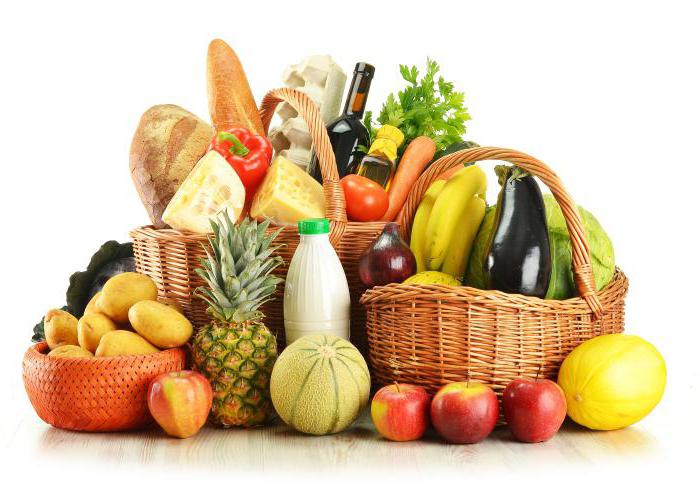
It is also recommended to create a competent diet. The table in the house in which the child lives should contain nuts, meat, seafood, sweet peppers and egg yolk.
Additional measures
How to improve children's memory? This question depends not only on exercise and proper nutrition. There are several additional measures:
• It is recommended to send your child to a sports section. Physical activity stimulates blood flow to the head and, accordingly, brain activity.

• Development will be better if the child spends 2-3 hours in the fresh air every day. Before going to bed, it is necessary to ventilate the bedroom.
• You should communicate more with your baby.
The most common mistakes parents make
- It is strictly forbidden to force the baby to do anything. Otherwise, there will be no positive effect from the classes, and in the future the baby will have a completely negative attitude towards them. The main task of parents is to interest him so that he himself is drawn to joint games.
- The baby's development should be addressed starting from the first month of his life. Then in the future the question of how to develop memory in a child will not arise.
- It is worth postponing the lesson to another time if the child is sick, tired or simply not in the mood.
- You should not compare your child with others. All children develop individually.
Fill your meals and quiet times with positivity.
Say the names of the foods your child eats. Express your joy that he is learning to feed himself, no matter how sloppy his first attempts are. This will convey positive associations with food and the act of eating.
Will the solar eclipse on June 21 be able to cope with the coronavirus (science opinion)
“The Germans fled after shouting “Hurray””: documents about the Second World War were declassified
For Joker fans: 10 best tattoos depicting the main villain
